Episodes
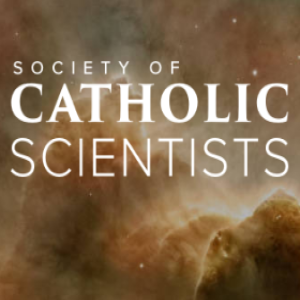
Monday May 20, 2019
Episode 060 – What Does It Mean To Be Human? (SCS 2019)
Monday May 20, 2019
Monday May 20, 2019
Today we continue our conversation with Stephen Barr about this year’s Society of Catholic Scientists conference, which will feature great speakers discussing the nature of humanity and its bounds in terms of time and technology. You can see a full list of speakers here and the program for the conference here.
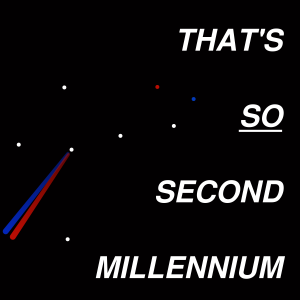
Monday May 06, 2019
Episode 058 – Let’s Act Like We’re on the Winning Side (Since We Are)
Monday May 06, 2019
Monday May 06, 2019
This ended up being an emergency episode Paul recorded solo, since Zencastr ate all but a few minutes at the beginning of each recording. There seem to be serious problems with Zencastr since Paul’s MacBook died and he had to resurrect his Windows laptop.
The Big Bang; cosmology seems to require a beginning, uncaused cause
Problems of mind; intellect / qualia, possibility of free will.
There is no materialist explanation of human intellect, only assertions of dogma and crude shufflings of the feet.
Ongoing occurrence of miracles, Lourdes medical board, Fatima, Shroud of Turin; Bob Schuchts
There are far too many miracles and supernatural phenomena that defy materialist explanation: Eucharistic miracles, healings at Lourdes and elsewhere, Fatima, demonic possession…
The testimony of the first Christian disciples requires absolutely crazy explanations that themselves defy our best science even if we reject the idea that Jesus rose from the dead.
The continuing existence and expansion of the Church in the face of persecution is likewise historically unparalleled, save only for the continued existence of Judaism.
Second of all, it provides perspective and healing for human problems that nothing else does.
John Warner Wallace from Breakpoint podcast; LAPD homicide officer
What has God done in my life... we GET to that, we don't start there like Mormons
Christianity provides a shockingly direct answer to the question of evil: the transcendent, all-good God is Himself willing to experience it.
The Christian faith continues to spread in Africa and Asia in the face of continued persecution, whether of the violent or of the brainwashing variety. Why is that?
The attempts of Western society to escape Christianity have made us amazingly miserable amid all our material possessions and security. Why do we so halfheartedly turn away from these distractions?
The most characteristic failing of our age, I would argue, is addiction, and addiction has evoked a powerful response in the form of the Twelve Steps. Although these Steps are deliberately offered to everyone with no attempt made to proselytize them to any specific religion—indeed many recovering addicts refuse to identify themselves as religious—nevertheless, the principles of the Steps are completely and suspiciously consistent with Catholic Christianity.
The Catholic intellectual tradition has a tremendously formidable intellectual structure, the most robust philosophical realism, an enormous storehouse of moral philosophy and psychological insight, and a wealth of stories of human drama in the lives of both saints and sinners.
Why do we slave along as intellectual second or third-class citizens in the modern world? I was just looking at the want ads of literary agents and realized that they are all blithely “progressive” members of the stumbling, bumbling cultural vanguard. Our culture is shaped by stories forged out of this nihilistic experience of forgetting an entire civilization’s worth of wisdom.
We are looking to help out at the Society of Catholic Scientists Conference this year, and are in talks about how we can do that. We’re really excited about working to create a greater sense of community among Catholic scientists!
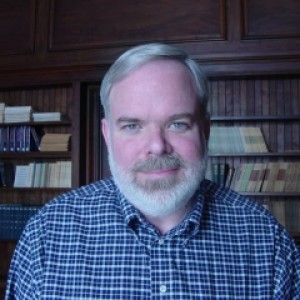
Monday Mar 04, 2019
Episode 049 - Craig Lent: physics and humanity
Monday Mar 04, 2019
Monday Mar 04, 2019
0:00 - Introduction
1:00 - The power of physicalism/reductionism: a tremendously powerful method
2:00 - Course on physicalism and Catholicism; Sean Carroll's least hysterical "poetic naturalism"
3:00 - The lack of evidence for "emergence" in the sense of "downward causation"
3:30 - Soft and hard emergence
10:15 - Materialism vs. physicalism and reductionism: philosophical materialism
13:00 - Are human beings exhausted by this account of reality?
14:00 - The break with the mechanical universe of 19th century physics underappreciated
15:00 - Laplace's demon
16:30 - Thermodynamics
17:30 - Future not contained in the present
19:00 - Einstein & hidden variables
20:00 - Bell inequality experiments
24:00 - Entanglement
26:00 - Human experience: both, as physical, but also as having choices
27:00 - Quantum physics on many body systems
28:00 - The hard problem of consciousness
29:00 - The explanatory gap
31:00 - The tendency to explain the brain as "just like" some recent piece of technology
33:00 - Complexity of neurons, the continuing relevance of physical laws amid the complexity
35:00 - Continuing relevance of quantum effects at the level of neurotransmitter molecules, etc.
36:00 - Quantum effects in weather and rock mechanics
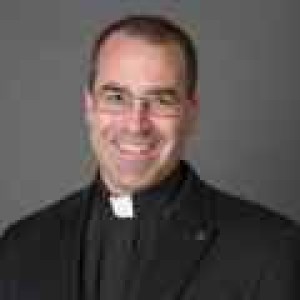
Monday Feb 25, 2019
Monday Feb 25, 2019
0:00 - Science is materialist by method, but scientists need not and should not be materialist by philosophy
2:00 - The world must be real and intelligible for science to make sense
3:00 - And faith provides a philosophical basis that allows this to happen
3:30 - Students' testimony on faith and science
4:30 - Removing the faith/science obstacle is only one step on the road toward faith
5:00 - God vs. Godzilla
6:00 - The true God and His use of secondary causes
11:00 - Creation as carmen Dei (song of God; Bonaventure)
12:00 - vs. strepitus naturae
15:00 - Thought and spirit vs. matter
[This harks back to, e.g., the Ed Feser talk at the SCS conference. I personally think there is an enormous gap--bridgeable, but still to be bridged--between these arguments that the ability of the mind to generate and handle abstract concepts implies a non-material component to thought on the one hand, and the work of modern neuroscience to track the activity of neurons around the brain in specific patterns as we think.]
17:00 - Philosophical gaps in the picture of existence without God
18:00 - Infinite regress of causes, temporal/efficient causes and extra-temporal
19:00 - Postmoderns in general have a depressing view: a para-Christian morality without God; doctrinaire atheists live in an even more depressing paradigm of complete lack of meaning
21:00 - Basil & Pope Francis on creation
22:00 - Basil on the interpretation of the six days and other aspects of creation
23:00 - Guides on the tour of creation
25:00 - Symbolic language (numbers) in Scripture
27:00 - Scriptural mandate to tend creation
29:00 - Historic ginning up of the conflict between science and faith
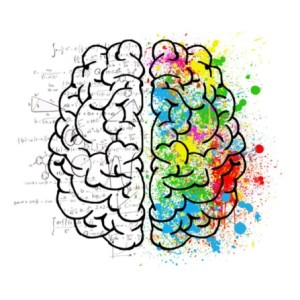
Monday Jan 28, 2019
Episode 044 - The Brain and The Pain of Being Human
Monday Jan 28, 2019
Monday Jan 28, 2019
In this episode, we expand on our introduction to the brain by discussing some theories - ranging from well-documented to rather speculative - about the specific structures of the brain that are active (or less active) in situations ranging from autism to depression, stress, and trauma.
At the end we spend a few minutes on a preliminary critique of the materialist reductionary attitude ("interpretation" is too grandiose a word for it) toward brain science by many of its practitioners and reporters. Free will, for example, is not an illusion just because the physical part of the brain where it happens can be injured and we can be deprived of it... but much more on such neurophilosophical issues as the year progresses.

Monday Jan 21, 2019
Episode 043 - Introduction to the Brain
Monday Jan 21, 2019
Monday Jan 21, 2019
In this episode, we lay out the basic groundwork for future discussions of the human brain.
The brain we humans have apparently evolved in three stages. This can't help but be a tremendous simplification, but it's a commonly encountered statement and seems to have considerable explanatory power.
The lowest part of the brain, the brain stem (the medulla, etc.) and the cerebellum, control unconscious processes, most of which we cannot take into conscious control even if we want to. Often this is called the "lizard" or "reptile brain."
A series of little suborgans, the thalamus, hypothalamus, amygdalae (a - myg ' - da - la, the good Latin pronunciation, for the singular apparently; and my Webster's unabridged also informs me that it just means "almond shaped thing"), putamen (that habit-storing part I could not remember during the episode), and a few other parts form the limbic system, that communicates between the senses and the body, and that serves critical functions for things like emotion and memory that we share with mammals.
The upper part of the brain, the big part in human brains, is the cerebrum. Its regions are referred to as cortex / cortices or lobes. We have large volumes of the brain dedicated to visual and auditory processing, motor skills, and the whole front of the brain is where the neural work of our most human capabilities occurs: judgment, reasoning, wondering, creativity, consciousness.
The following two books informed the discussion today:
The Body Keeps the Score by Bessel van der Kolk
Mapping the Mind by Rita Carter
I cannot recommend The Body Keeps the Score highly enough. It starts out as a discussion of PTSD, but it grows organically into a discussion of problems that all children, and therefore all of us, are liable to have, and ways that are being discovered to bring both brain and body to peace.
On the other hand, Mapping the Mind is only intermittently good. The first hundred pages I found rough sledding, with little sense the author understood the facts being hauled out and stacked up. It got better. The last few chapters betray the common, poorly thought through materialist reductionism common in the field, no surprise, but the content of the final 200+ pages is mostly good. Autism, depression, and addiction come up, although the stock in trade is discussion people with bizarre, tragic, but fascinatingly specific brain damage and what those episodes suggest about how all the different mental aspects of being human are spread about the brain.

Monday Jan 14, 2019
Episode 042 - TSSM in 2019, part 2
Monday Jan 14, 2019
Monday Jan 14, 2019
What sense can we make of the ancient and medieval idea that "the soul is the form of the body" in the light of contemporary neuroscience and psychology?
Highlight this idea's differences from Platonic and Cartesian dualism.
History of psychology as a discipline. Psychology has not evolved (a) master paradigm(s) that compel the bulk of the field to adhere to them the way that plate tectonics did for geology, Newtonian classical physics and then quantum and relativity did for physics, etc.
Peace of Soul (Fulton Sheen) remark that psychology has been furtively recycling Christian ideas and passing them off as new for a long time
Examining the convergence points of the advice for living from the Bible and Tradition, modern psychology, and the contemporary self-help / New Age-y movement that continues to spread and adapt through large sectors of modern culture.
Self-esteem, humility...
Confidence, faith, negative tapes...
Twelve Step spirituality (Richard Rohr and the intense overlap between 12 Step and Catholic spirituality)
Even many of us who are explicitly Christian have internalized a kind of Lutheran / Jansenist belief that we are so terrible that, in essence, God made a mistake in going to all this effort to save us, because we're not worth it. This is one of a number of areas in contemporary Catholic and Christian culture where we have let our understanding of Scripture and Tradition get very warped and imbalanced.
Issues surrounding how the Christian and scientific understanding of universal history could fit together.
What will "the end of the world" look like? Will it be the end of the whole universe or not? Will there be human colonies on other planets, orbiting other stars? How would the Apocalypse play out then?
You can find That's So Second Millennium at all of these places:
tssm.podbean.com
paggeology.net/blog
@infamousDrG on Twitter
That's So Second Millennium page on Facebook
giesting -at- alumni.nd.edu is Paul's email address
Please be in touch with your feedback, ideas for new episodes, and conversation of any kind!

Monday Jan 07, 2019
Episode 041 - TSSM in 2019
Monday Jan 07, 2019
Monday Jan 07, 2019
Themes we'd like to grapple with in the Year of Our Lord, 2019, and beyond:
Last year was largely about the intellectual challenge leveled by many against religion, and we will continue talking about that as the podcast moves forward.
Paul's mission this year to work through Road to Reality
This year we also want to broaden the scope to include places where religion and faith converge, which means we're going to discuss psychology.
Looking forward to the SCS conference topic for this coming year: what it is, and has been, to be human. Neuroscience and what it implies for anthropology, and where it meets Catholic Christian anthropology coming the other way.
What is consciousness, anyway? What parts of the brain seem to be involved, and what do they do?
What is free will, anyway? Where are those breakpoints where the soul would have to affect the body in order for that to even work?
Crisis points in the way people in the post-Christian West approach the world.
Center for Ethics & Culture annual conference in 2018: Wilfred McClay & John Waters
"we care about everything, but without God... we have responsibility for everything, but we know that we are flawed and unable to provide solutions"
Post-Christian in this context includes both people who have explicitly renounced the Christian faith of the West and those who have a Christian identity in their back pocket somewhere but in reality are not relying on Jesus Christ or his teachings to guide their lives in any conscious way.
Christianity is a demanding religion. If you suck away all the grace and help it promises, but leave some of its demands for social justice or purity of intention, you have a recipe for constant internal condemnation.
Link:
Wilfred McClay (University of Oklahoma) on “Guilt in the Immanent Frame”, and John Waters on “The Importance of Not Being God: A Higher Power Is Indispensable for Human Beings and Human Societies”
No, not THAT John Waters.
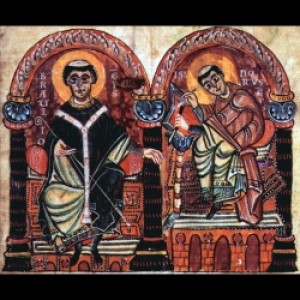
Monday Nov 05, 2018
Episode 032 - Science and Saints
Monday Nov 05, 2018
Monday Nov 05, 2018
Intro: Nobel Prize announcements
Donna Strickland
Nadia Murad
Segue: Lemaitre press release
Transition: the early 20th century golden age from Chesterton to Fulton Sheen
Theme: All Saints Day
Augustine
Isidore
Albert the Great
Roger Bacon
Nicolaus Steno
Gregor Mendel
Georges Lemaitre
Please leave us feedback here by hitting the "Email Paul" link or using the "Facebook" link and commenting or messaging us there.
Image: Braulio of Saragossa and Isidore of Seville, writing his Origins (Etymologies)

Monday Aug 06, 2018
Episode 019 - Conclusion: SCS Conference
Monday Aug 06, 2018
Monday Aug 06, 2018
We pick up from last week's episode with the next speaker. Kara Lamb followed Andrew Sicree; her research is about the atmosphere and climate. She mostly talked about climate, and got a ways into specifics about her research on black carbon soot in the atmosphere. She did stop to draw a parallel between Laudato Si and Pacem in Terris, that in both cases the Popes stopped to address humanity at large and not just the Church.
Juan Martin Maldacena was after her, and was presented the St. Albert Award. You don't schedule Juan Maldacena and not have him talk about his own physics research; he is famous for research on workable forms of string theory in anti-de Sitter space and some results on the shape and nature of black holes. His talk was very technical and rather hard to summarize, but an intriguing aspect of it was the recurring notion that black hole singularities and the original singularity of the Big Bang might have a lot in common.
Sunday morning after Mass Michael Dennin led off with a talk structured around a book called "The Big Picture" by somebody I think I've heard of but don't know why named Sean Carroll. In this book Carroll apparently divides reality into "poetic naturalism", where "poetic" means "stories we tell ourselves about large complicated objects" and "naturalism" means "quantum physics, which is actually reality". Dennin made four points:
- Emergence. Reality does not appear to be just quantum physics (or, I would elaborate, not even just a unified theory that somehow gets gravity and relativity united with quantum physics). There are really new laws that emerge as you go to larger, composite, varied objects...the laws of thermodynamics, entropy in particular, are an example.
- Physical reality. It's a little much to talk about "reality" so cavlierly; it ignores basically metric tons of philosophical questions people have spent centuries debating. Is physical reality basically sense data? Is it the particles we theorize to be out there to explain, ultimately, our sense data in the context of the experiments we do and the natural objects we observe? Isn't there nonphysical reality: mathematics, wavefunctions (they can't be completely physical), conscious reality / qualia? How can we be sure there aren't nonphysical "forces" acting on physical objects? In some way, don't they have to? (mathematics and logic in some way constrain reality, that's a rumination of mine while writing this)
- Free will...the Comptonesque observation that quantum physics leave room for this nonphysical soul or mind to affect the physical body
- MIracles. Dennin actually led off the talk with an exercise, asking us to define miracles, and then he went on a fairly vigorous campaign against the idea that miracles ever incorporate the violation of physical law, or at least that they require it, that that should be in the definition. I noted "Contrasting focus on God's will/purpose..." but I cannot really reconstruct what he seemed to be driving at.
Craig Lent, a professor at Notre Dame, went next and gave an interesting talk that interfaced with others. He actually seemed to conflict with Barr in that he commented early on that the "state vector," which had be be the wavefunction since it had the same Greek letter psi for its symbol, contained all the information possible to have about a system and not just one observer's (the concept Barr used). He also addresses the measurement problem, but my note broke off mid-sentence. He went on to summarize the content of Scarani's talk, that Bell inequality experiments all show that the universe is not deterministic. He then addresses the claim that while atom-scale particles show quantum indeterminism, larger stuff does not, and nerves are enough larger that the human brain must be deterministic. That's probably not true; even 10,000 atomic mass unit molecules like neural transmitters show quantum behavior in experiments. We are left again with the Arthur Compton point that while obviously physics constrains us, our brains are not deterministic machines; if our souls are not affecting them, then at the very least some of their functionality is random.
The final talk was by (Padre) Javier Sanchez-Canizares on "Mind, Decoherence, and the Copenhagen Interpretation." This again comments on many of the topics in previous talks. Unfortunately the talk seemed to paw about problems already discussed without coming to any new realizations. I cannot tell from my notes whether I learned anything about decoherence, which I was really hoping to do; I think I had to look it up afterward, and even then the answers I've found so far are not satisfying. He asked the "Wigner's friend" question that Barr mentioned about the "cut" between the observer and the system in a quantum physics observation. He also made some intriguing comments on the nature of classical physics: if quantum physics is reality, why is it so hard to get rid of classical physics terminology? We still describe things that way. A recent physicist, Zurek, comments that classical physics entities somehow embody a "survival of the fittest" (the sort of comment I start questioning for influence of the divine name of evolution). Heisenberg apparently said that classical physics terms are just unavoidably part of how humans interact with the world.

